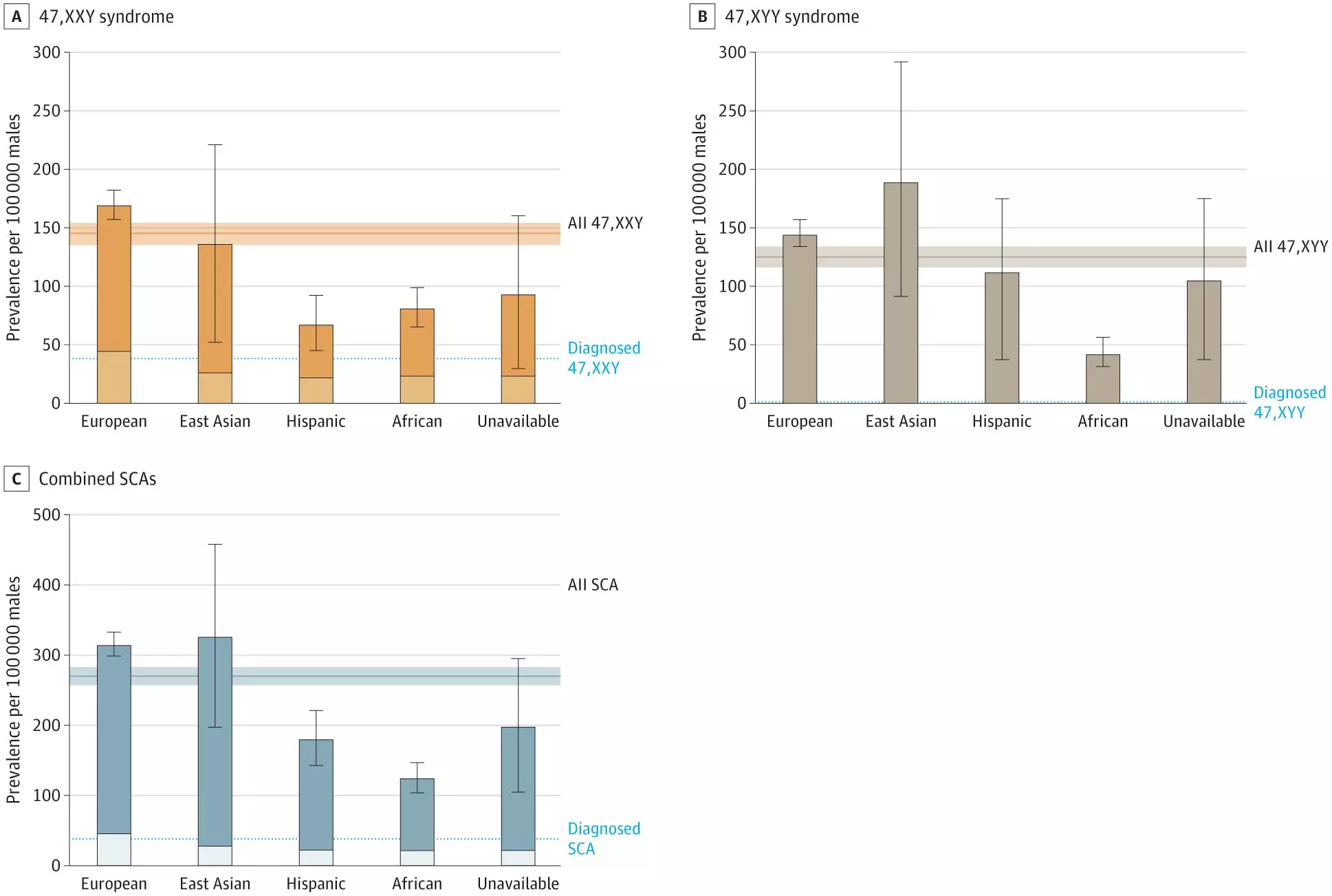A recent study conducted at the University of Colorado Anschutz Medical Campus, along with collaborators across the country, aimed to shed light on the prevalence and implications of extra X or Y chromosomes in men. This study, which utilized a large dataset of military veterans, is considered the largest and most diverse of its kind in the United States. The findings from this research have the potential to improve the diagnosis and treatment of individuals with these underrecognized conditions.
Underdiagnosis and Associated Risks
The study revealed that approximately 1 in 400 males have an additional X or Y chromosome, yet a staggering 86 percent of these individuals remain undiagnosed. Men with an extra X chromosome, known as Klinefelter syndrome, or an extra Y chromosome, known as Jacobs syndrome, face an increased risk of delayed development, learning disabilities, type 2 diabetes, and cardiovascular disorders. Additionally, individuals with Klinefelter syndrome often experience impaired testicular function, low testosterone levels, and infertility.
An interesting aspect of this study was the focus on a more diverse population, particularly among veterans involved in the Million Veteran Program (MVP). Traditionally, the research on these conditions has been limited to a small percentage of clinically diagnosed individuals of Western European ancestry. However, by analyzing genetic data from nearly 600,000 veterans, the study found similar rates of extra X and Y chromosomes in this diverse population. Surprisingly, white and Asian veterans had the highest prevalence of these syndromes, while black and Hispanic veterans showed the least prevalence.
Despite the advancements made through this research, there are still significant gaps in our understanding of the implications of having extra X and Y chromosomes, especially among individuals who have not received a clinical diagnosis. The study’s first author, Dr. Shanlee Davis, emphasized the importance of studying this aging population to uncover the risks associated with these genetic variations, even in the absence of a clinical diagnosis. The findings from this study underscore the urgent need for improved awareness, diagnosis, and care for men with extra X and Y chromosomes.
The study on the impact of extra X and Y chromosomes in men represents a critical step towards better understanding and addressing the medical and psychiatric comorbidities associated with these conditions. By focusing on a more diverse population and highlighting the underdiagnosis of these syndromes, this research opens up new possibilities for early intervention and improved outcomes for individuals with Klinefelter and Jacobs syndromes.

